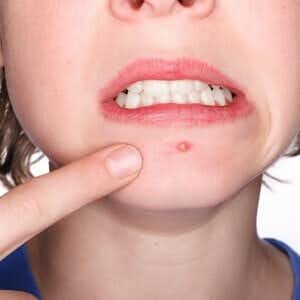
Acne is the bane of adolescent existence, but many people battle blemishes well beyond their teen years. Many different factors appear to contribute to this common skin condition. Among them is an overgrowth of bacteria called Propionibacterium acnes. When these bacteria predominate over other natural skin microbes, they contribute to red, inflamed pimples. No doubt that explains why dermatologists frequently prescribe antibiotics for blemishes, but this approach has drawbacks such as side effects and the development of antibiotic resistant strains (Liu et al, Current Drug Metabolism, 2015). Is there a simpler way to fight acne?
How to Fight Acne with Clean Washcloths:
Q. I have had acne since the age of 13. I have found a very simple approach most helpful.
I purchased about 20 white washcloths so I can change them daily. I use a salicylic acid cleanser before bed and benzoyl peroxide in the morning. This routine keeps my face clear. I think the twice daily cleansing plays a big part.
A. Another reader also reported success using a fresh washcloth each time she washed her face. Both salicylic acid and benzoyl peroxide are effective OTC acne medicines. Be sure to use an effective sunscreen, though. Benzoyl peroxide and salicylic acid can increase sensitivity to UV rays and lead to a bad sunburn.
Can You Fight Acne with Diet?
Some researchers suggest that cutting back on refined carbs and sweets may also be helpful (Journal of the Academy of Nutrition and Dietetics, Sept. 2017). A diet low in glycemic index and glycemic load reduces insulin-like growth factor that can contribute to blemishes (Burris et al, Journal of the Academy of Nutrition and Dietetics, online April 21, 2018).
Recent research also indicates that people with inadequate circulating levels of vitamin D and those with celiac disease (elevated tissue transglutaminase) are more more susceptible to acne (Stewart & Bazergy, Dermato-endocrinology, Feb. 22, 2018). Such individuals might benefit from brief sun exposure or supplements to raise vitamin D levels into the normal range.

